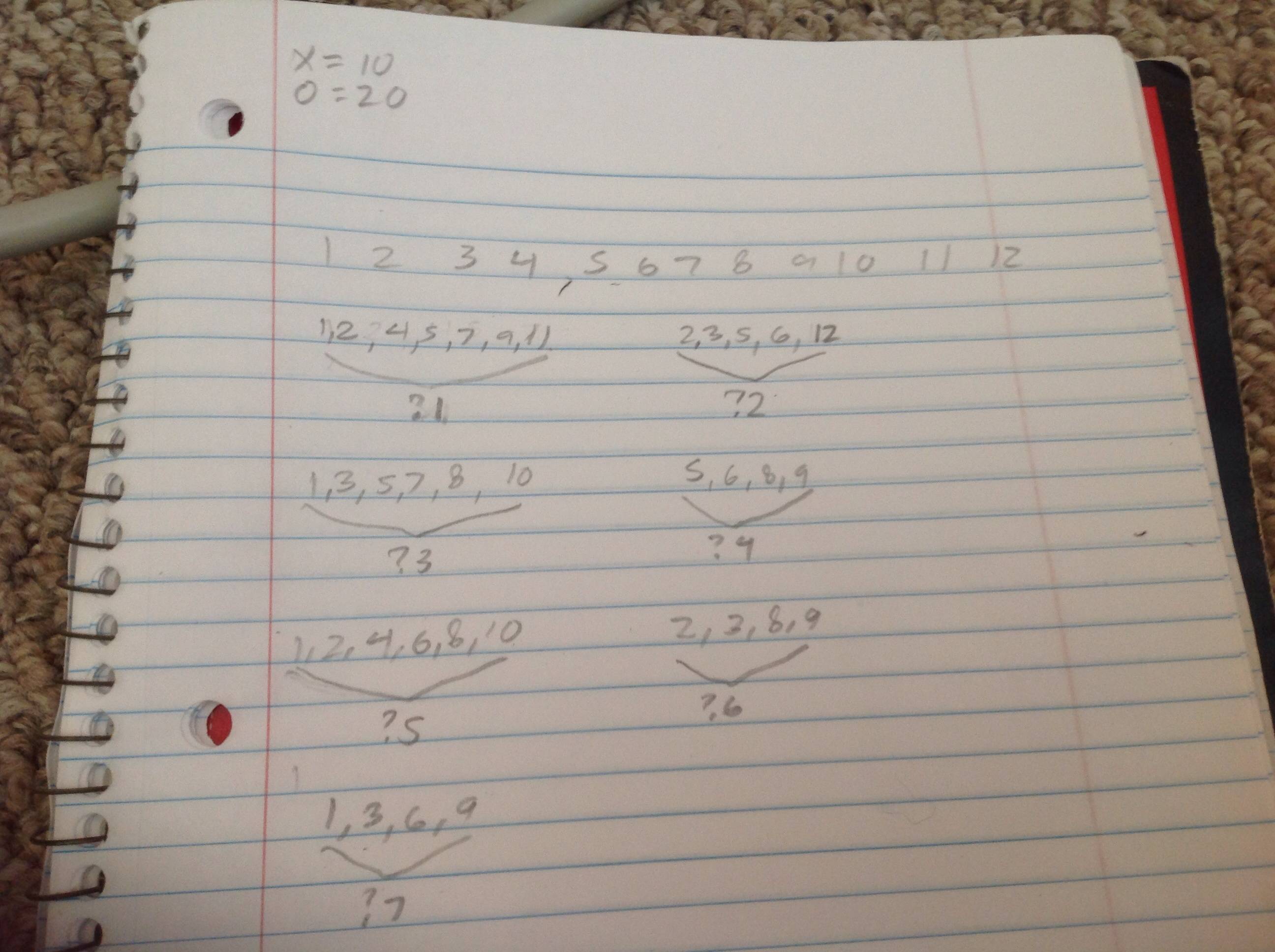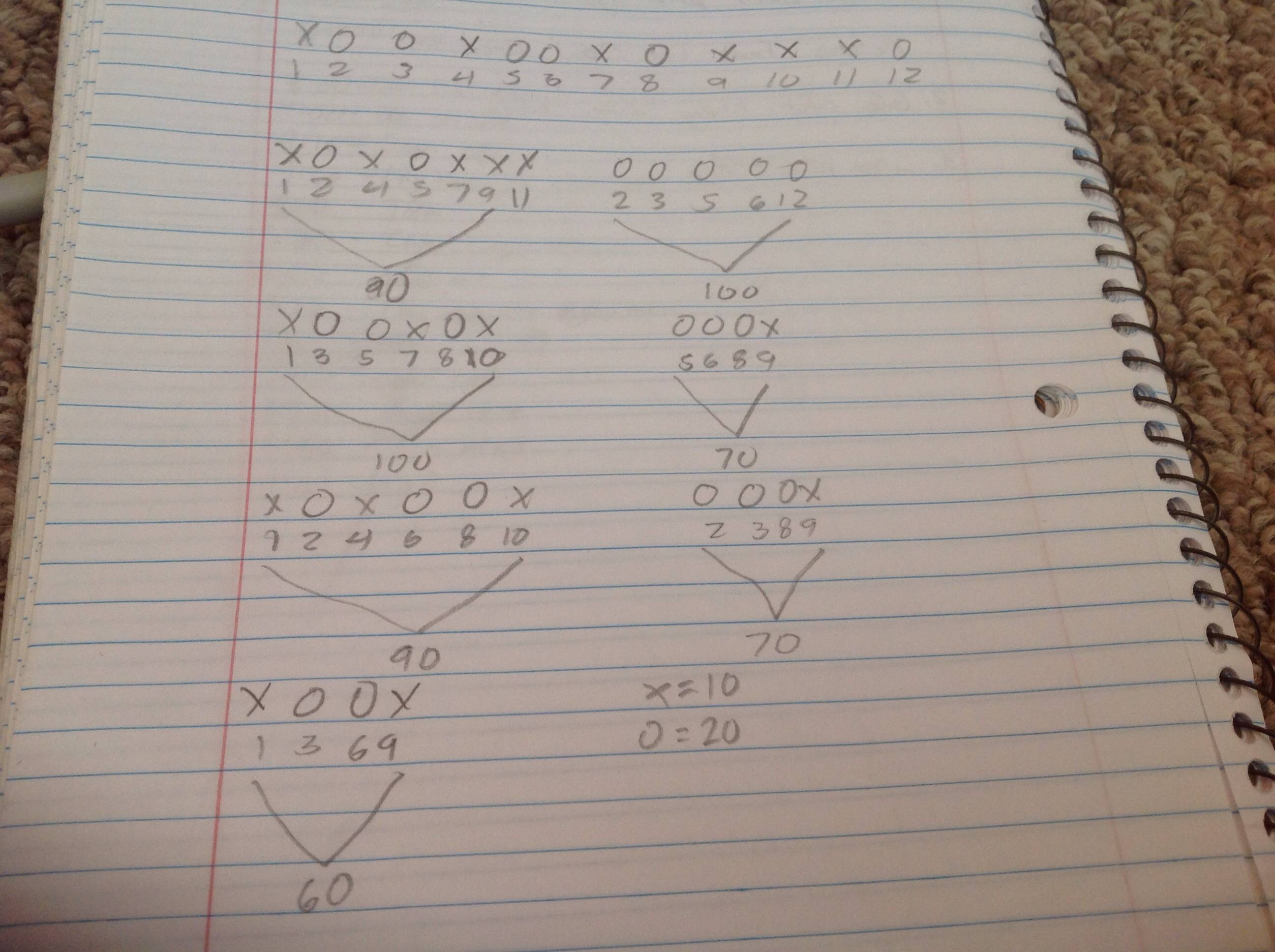I can manage it in 8 weighings.
I started with mdc32's answer and expanded on it. I was able to weigh 6 coins in 4 weighings. I suspect 12 can be done in 7 weighings, but I haven't figured out a way to do that yet.
Start with a group of coins $\{c_1,c_2,c_3,c_4,c_5,c_6\}$.
Weigh 1: $c_1 + c_2$. If the weight is either 20 or 40, follow mdc32's answer to weigh the other 4 in 3 weighings. Otherwise, the weight was 30, and proceed to the next weighing.
Weigh 2: $c_1 + c_3 + c_4$. If the weight is either 30 or 60, all of the weights of $c_1, c_2, c_3, c_4$ are known. Use weighing 3 for $c_5$ and 4 for $c_6$.
If the weight was 40, the 3 options for the group of coins weighing 20 are:
$\{c_1\}, \{c_2,c_3\}, \{c_2,c_4\}$. Proceed to 3a.
If the weight was 50, the 3 options for the group of coins weighing 20 are:
$\{c_1,c_3\}, \{c_1,c_4\}, \{c_2,c_3,c_4\}$ Proceed to 3b.
Weigh 3 (a or b): $c_2 + c_3 + c_5$. If the weight is either 30 or 60, all the weights of $c_1, c_2, c_3, c_4, c_5$ are known. Use weighing 4 for $c_6$.
If 3a and a weight of 40, the 2 options for coins weighing 20 are:
$\{c_1,c_5\}, \{c_2,c_4\}$. Proceed to 4a.
If 3a and a weight of 50, the 2 options for coins weighing 20 are:
$\{c_2,c_3\}, \{c_2,c_4,c_5\}$. Proceed to 4b.
If 3b and a weight of 40, the 2 options for coins weighing 20 are:
$\{c_1,c_3\}, \{c_1,c_4,c_5\}$. Proceed to 4c.
If 3b and a weight of 50, the 2 options for coins weighing 20 are:
$\{c_2,c_3,c_4\}, \{c_1,c_3,c_5\}$. Proceed to 4d.
Weigh 4a: $c_1 + c_5 + c_6$
If the weight is 30, the heavy coins are: $\{c_2,c_4\}$
If the weight is 40, the heavy coins are: $\{c_2,c_4,c_6\}$
If the weight is 50, the heavy coins are: $\{c_1,c_5\}$
If the weight is 60, the heavy coins are: $\{c_1,c_5,c_6\}$
Weigh 4b: $c_4 + c_5 + c_6$
If the weight is 30, the heavy coins are: $\{c_2,c_3\}$
If the weight is 40, the heavy coins are: $\{c_2,c_3,c_6\}$
If the weight is 50, the heavy coins are: $\{c_2,c_4,c_5\}$
If the weight is 60, the heavy coins are: $\{c_2,c_4,c_5,c_6\}$
Weigh 4c: $c_4 + c_5 + c_6$
If the weight is 30, the heavy coins are: $\{c_1,c_3\}$
If the weight is 40, the heavy coins are: $\{c_1,c_3,c_6\}$
If the weight is 50, the heavy coins are: $\{c_1,c_4,c_5\}$
If the weight is 60, the heavy coins are: $\{c_1,c_4,c_5,c_6\}$
Weigh 4d: $c_2 + c_4 + c_6$
If the weight is 30, the heavy coins are: $\{c_1,c_3,c_5\}$
If the weight is 40, the heavy coins are: $\{c_1,c_3,c_5,c_6\}$
If the weight is 50, the heavy coins are: $\{c_2,c_3,c_4\}$
If the weight is 60, the heavy coins are: $\{c_2,c_3,c_4,c_6\}$
Do the same for the other 6 coins, and all coins are known in 8 weighings.


